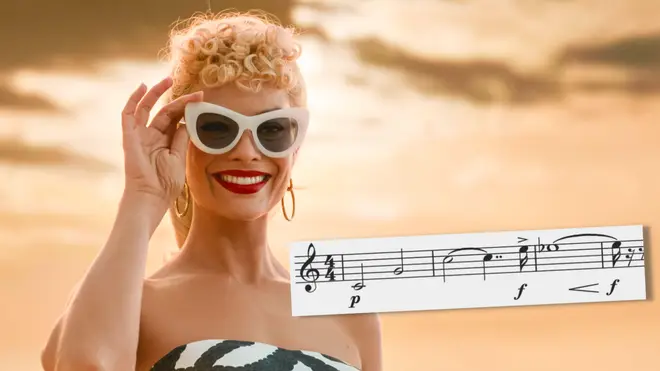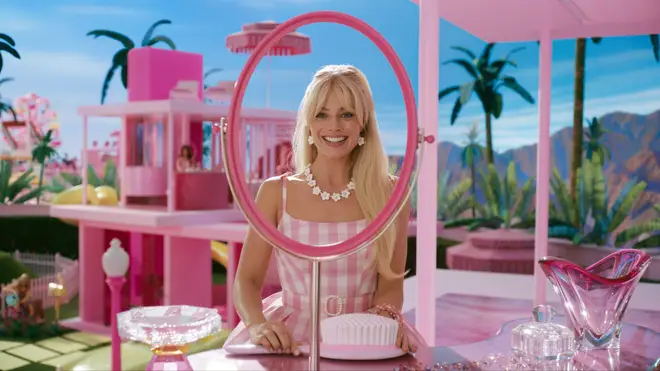On Air Now
The Classic FM Hall of Fame Hour 9am - 10am
24 July 2023, 12:49

A familiar orchestral epic sets the tone for the film of the summer...
When a live-action movie about the toy doll, Barbie, was first announced, we’re not sure anyone pegged this pink-hued plastic fantasy film to feature a classical soundtrack.
However, the very first piece of music the Barbie audience hears when the film begins is one of classical music’s most iconic and loved works, Also Sprach Zarathustra written in 1896 by the German composer, Richard Strauss.
Strauss’ epic orchestral expedition is no stranger to the silver screen and has had its fair share of memorable moments in cinematic history, with its placement in 2001: A Space Odyssey perhaps being its best-known outing.
But why did Barbie’s director, Greta Gerwig, choose such a dramatic piece of music to open a movie about an 11.5-inch dolly come to life? We break down the movie’s spoiler-free first scene and why Strauss’ music is the perfect choice of musical momentum for the audience’s accelerated ascension to Barbieland.
Vote for your favourite film in the Classic FM Movie Music Hall of Fame 2023

Watch the opening scene of ‘Barbie’ starring Margot Robbie
The fanfare from Strauss’s Also Sprach Zarathustra, which translates as ‘Thus Spoke Zarathustra’, rose to international fame after being used as the opening sunrise in Stanley Kubrick’s 1968 film, 2001: A Space Odyssey.
The film famously begins with just music, no words, and an image of the sun rising above the earth. This is then followed by a visual depiction of the ‘Dawn of Man’, the story of mankind and its transition from ape to human.
Greta Gerwig’s movie parodies this opening, translating the Dawn of Man, into perhaps a Dawn of the Doll – or more specifically, the Dawn of Barbie.
As Strauss’ grumbling bass line opens the first scene of the 2023 film, there is no pink in sight. What was promised to be a bright and vibrant, feel-good film instead opens on a dusty yellow-tinged rugged landscape.
The narrator, beloved actress Dame Helen Mirren, is the first voice heard against the barren landscape. “Since the beginning of time. Since the first little girl ever existed. There have been dolls.”
And only after Mirren’s boldly delivered first line does Strauss’ iconic major fifth begin. What happens next almost exactly mirrors the opening scene of 2001: A Space Odyssey. Watch below.
Read more: Does Ryan Gosling really sing and play guitar as Ken in ‘Barbie’?

Barbie teaser vs 2001: A Space Odyssey #barbie #shorts
Whilst the central point of the opening scene in 2001: A Space Odyssey is the presence of a black monolith, representing mankind’s evolutionary shift, Barbie’s centrepiece is of course the titular doll herself.
As Mirren narrates, Barbie – at least according to the movie – sees herself as an evolutionary shift in the world of toys. Whilst dolls have been around for millennia (with some having even been dated back to 8000 BC), Mirren explains that prior to Barbie, these were all baby dolls.
It’s a bold comparison to make, but sets the tone for a film that doesn’t take itself too seriously.
Despite toy company Mattel putting a $100 million price tag on the development of the Barbie film, the two-hour-long movie doesn’t shy away from taking hits at the doll manufacturer’s grandiose opinion of its place in the women’s rights movement.
As Mirren says early on in the film, “Thanks to Barbie all problems of feminism have been solved... at least, that’s what the Barbies think.”
Read more: Why the violin plays such a prominent role in the Intimate ‘Oppenheimer’ soundtrack

The remainder of the film explores a sensationally diverse soundworld of pop, rap, and dance, with artists such as Lizzo and Dua Lipa taking centerstage, leaving the opening orchestral work by Strauss as a soundtrack anomaly.
However, the atmosphere built by this orchestral fanfare for the ages sets the tone for a film that while not a space odyssey, is most certainly an exploration into what it is to be human.